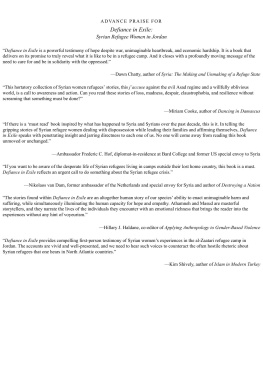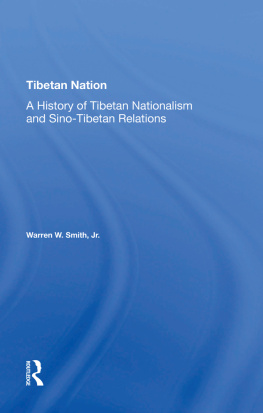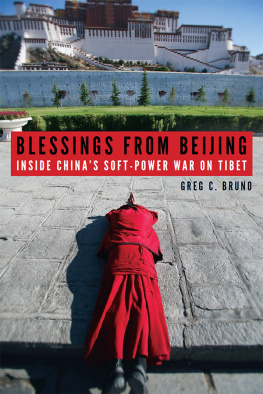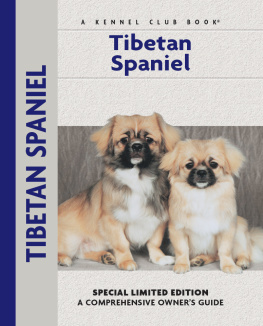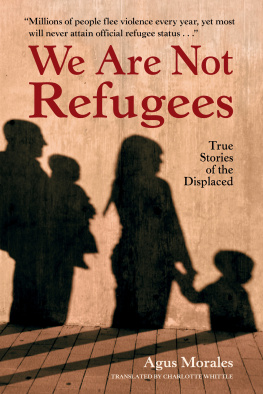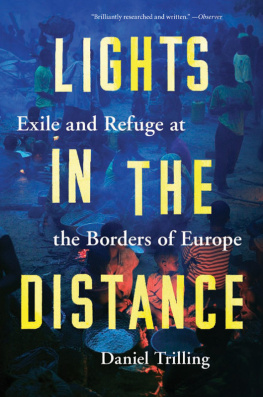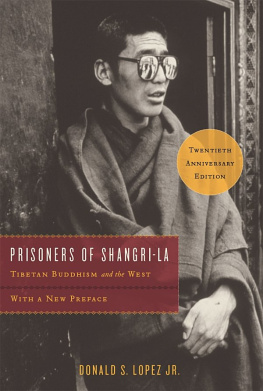
The tragedy of the Tibetan community, and its resiliency inspired by the spiritual leadership of the Dalai Lama, have been rarely described as eloquently and with such evident empathy as in this book. Vahali brings psychological insight to Tibetan lives in exile in such a compelling manner that her book can serve as a model for the study of other traumatised communities.
Sudhir Kakar, Eminent Indian psychoanalyst and writer
The psycho-historical analysis in Vahalis book focuses on numerous life stories with loss, hope, suffering and resilience as integral themes, attempting to find analytical significance based on individual realities. This approach consciously assumes that such subjective realities have greater potential for directing the course of the future than ascertained historical facts. This study offers important insights into the lives of a multi-generational cross-section of Tibetans in India. The unique perspective authentically encapsulates the lived realities of a displaced community. It provides humanistic insight and empathetically paints the various hues that mark the identity of Tibetan refugees. It should be of particular interest to psychologists working amongst groups facing similar afflictions, as well as to an audience wishing to further their understanding of the tribulations of exiled Tibetans.
Rinchen H.C. Choegyal, SOAS, University of London, Journal of South Asia Research
Such engaged research constitutes a force that not only provides insight into the refugees trauma but also opens up certain directions regarding how to deal with the present and prepare for meaningful future social action. Interested readers should find this a gripping text rich with many insights.
Pranjali Bandhu, The Tibetan Review, 2014
Well researched and eloquently written. This is a brave and absorbing book, and one which I hope will be widely read and appreciated in academic circles and beyond. The author is to be congratulated for her detailed and painstaking research and also on devoting so much space to the first-hand accounts by Tibetans, thus giving the reader direct access to the historical experience and ongoing tragedy of the Tibetan situation. Every aspect of the Tibetan catastrophe is covered in these narratives and the range of voices documentedspanning the generations as well as the political spectrum of views within the Tibetan community-in-exilemakes this one of the most comprehensive treatise I have read on the topic.
Stewart W. Mercer, Faculty of Medicine, University of Glasgow
I have read and followed many websites and books on Tibet but the work that caught my attention the most is by Honey Oberoi Vahali. Her book Lives in Exile: Exploring the Inner World of Tibetan Refugees, is a heart-wrenching collection of real stories of people who have faced severe inhumanities and troubles and who, despite all the wrath, didnt succumb to death. Instead, they gathered courage and fought for their rights.
Vandana Ram in The Tibetan Review
The evocativeness of the book lies not in transporting the reader to the miseries and accounts of hardship but in the processes of how the human psyche actively constructs and delivers itself a landscape to function in. A work of candour that comes across in the questions it raises, it provides a template within which issues of injustice ought to be viewed from apertures of self and definitions of the other, which can provide answers to the questions that anyone working with injustice and trauma ought to ask of themselves.
Kshitija Wason, Indian Institute of Technology, Delhi, India
Lives in Exile
This book explores the devastating consequences and psychological ruptures of refugeehood as it evocatively recounts the life histories of dislocated Tibetans expelled from their homes since 1959. Following the genre of a story, the book offers dynamic understandings of unconscious processes and the intergenerational transmission of trauma across generations of an exiled and internally displaced people.
The book analyses the paradoxical spaces which Tibetans in exile occupy as they strive to preserve their cultural and spiritual heritage, rituals, religion and language while also dynamically remoulding themselves to adapt to their living realities. Presenting a nuanced picture, it narrates stories of refugees, political prisoners and survivors of torture along with experiential accounts of loss and angst, cultural celebrations and political demonstrations. The author in this edition presents a fresh introduction that situates Tibet within the contemporary global political context. In this edition she also highlights and explores the art, artists and poetry in the exiled community. The volume looks at the significance of Buddhism and the philosophy of the Dalai Lama for the people in exile and the personal and collective will of the community to connect their lost past to a living present and an imagined future.
Rooted in the psychoanalytical tradition, this book will be of interest to psychoanalysts, psychotherapists, psychologists, sociologists, political thinkers, historians and scholars of literature, arts and aesthetics. It will also appeal to those interested in Sino-Tibetan relations, Buddhist studies, South Asian studies, cultural and peace studies, and those working with refugees and displaced persons.
Honey Oberoi Vahali is Psychoanalyst, Clinical Psychologist and Professor of Psychology at the School of Human Studies, Ambedkar University Delhi, India. For over two decades, she has been closely involved with the political movement of the exiled people of Tibet living in India. As a researcher and psychotherapist, the author has been exploring bridges and inter-relational spaces between psychoanalysis, existentialism, radical spiritualties and engaged social activism.
Lives in Exile
Exploring the Inner World of Tibetan Refugees
Second Edition
Honey Oberoi Vahali
Second edition published 2021
by Routledge
2 Park Square, Milton Park, Abingdon, Oxon, OX14 4RN
and by Routledge
52 Vanderbilt Avenue, New York, NY 10017
Routledge is an imprint of the Taylor & Francis Group, an informa business
2021 Honey Oberoi Vahali
The right of Honey Oberoi Vahali to be identified as author of this work has been asserted by her in accordance with sections 77 and 78 of the Copyright, Designs and Patents Act 1988.
All rights reserved. No part of this book may be reprinted or reproduced or utilised in any form or by any electronic, mechanical, or other means, now known or hereafter invented, including photocopying and recording, or in any information storage or retrieval system, without permission in writing from the publishers.
Trademark notice: Product or corporate names may be trademarks or registered trademarks, and are used only for identification and explanation without intent to infringe.
First edition published by Routledge 2009
British Library Cataloguing-in-Publication Data
A catalogue record for this book is available from the British Library
Library of Congress Cataloging-in-Publication Data
Names: Vahali, Honey Oberoi, author.
Title: Lives in exile : exploring the inner world of Tibetan refugees / Honey Oberoi Vahali.




